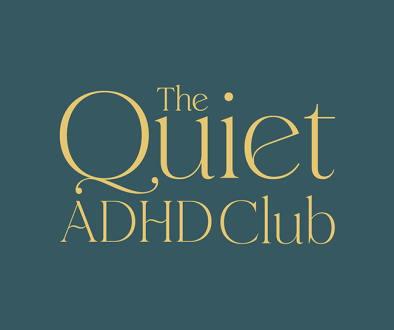How can neurodivergence be missed in childhood?

Late diagnosis of ADHD or AS in adulthood can be a source of intense retrospective grief and resentment. How could it have been overlooked?
Judgement in early life can lead to shame and masking
- Masking is a form of social blending
- It can stem from social rejection
- Rejection has an intense impact, especially in early years
Neurodivergent behaviours like stimming can unfortunately be judged and ridiculed by others in early life. This could either come from adult figures like parents and teachers or fellow schoolchildren. It comes from simple misunderstanding in all cases, but especially if the neurodivergent individual has not been diagnosed.
It can hurt so much to know you are different and it’s noticeable to others. This kind of social stigma leads to intense masking and people pleasing to fit in. It is a natural response, but has a huge impact on one’s self-esteem and how one relates to others. It can become so habitual to not act authentically that it becomes the new normal, making its impact on mental and physical health even harder to decipher.
Underrepresentation of girls and women
- AFAB (assigned female at birth) often fly under the radar regarding ADHD and AS
- Symptoms of girls and women have historically been underrepresented
- Diagnostic criteria often focuses on AMAB (assigned male at birth)
Diagnosis has come a long way, but historically and even now, girls and women are underrepresented in neurodivergent research. The diagnostic criteria for both ADHD and AS has traditionally focused more on male-presenting symptoms. It also does not acknowledge that girls tend to mask more successfully than boys.
According to Daisy Chain Project:
“Despite a growing awareness of neurodivergence in girls and women, they continue to be underrepresented in diagnosis statistics. Research suggests that 80% of autistic females remain undiagnosed or misdiagnosed by the age of 18. This gap in diagnosis can have serious repercussions.”
Without insight, support, and understanding, this puts women and girls at risk of developing co-occurring mental health conditions or being misdiagnosed. Whilst diagnostic criteria needs to be addressed in the healthcare sector going forward, women who are late diagnosed should try to have compassion for themselves about the social circumstances they grew up in.
The strengths of ADHD and AS are either patronised or undervalued
- It’s not always helpful to talk about them as “superpowers”
- Equally, it’s important to acknowledge the positives
- Either extreme leads to misunderstanding
Much of the discourse fails to strike the right balance when talking about neurodivergent conditions. ADHD and AS can be patronisingly referred to as “superpowers”, which diminishes the important struggles people have with these conditions in their daily lives, or the positives of them are overlooked.
For example, if someone is primarily inattentive ADHD (formerly referred to as ADD), they don’t experience the highs of hyperactivity in the same way as those with primarily hyperactive ADHD. Nonetheless, ADHD is still commonly associated with hyperactivity, despite it being considered an umbrella in categorisation. This might make people with inattentive symptoms feel down on themselves that they don’t have this energetic “superpower”, despite its potential for negative effects. The inattentive ADHDer may instead experience racing thoughts rather than physical restlessness. This is a huge cause of co-occurring anxiety and sleep issues.
Conversely, the ability to have periods of hyperfocus in ADHD are often overlooked, making people with ADHD feel misunderstood in the job market. It is encouraged to disclose disabilities, yet they are not fully understood by employers, with underrepresentation of the positive aspects.
For example in the case of AS, the value of attention to detail or the ability to spot patterns might be overlooked by an employer. AS is a complex diagnosis with very different presentations in different people. Interdisciplinary meetings between healthcare professionals are needed to determine the outcome. It’s even harder for a layperson to understand AS. Education is vital so as not to oversimplify autism. However, it is going to take time for years of stereotypes to be resolved.
The impact of a late diagnosis
- Retrospective resentment and anger is a common experience of adult diagnosis
- It can also change one’s perspective on upbringing and family life
- Being missed or misdiagnosed in childhood can cause an intense sense of grief retrospectively
“Better late than never” is definitely the adage to go by here. However it is important to recognise the complex emotional process that follows when someone is diagnosed with a neurodiverse condition in adulthood.
For many, it can provide a sense of relief. It provides another lens through which to look at the difficulties in life, a burden that’s been carried for so long with no real answer.
A diagnosis explains the difficulties you may have had, but it doesn’t solve them. Aside from the practical difficulties with medication titration at the moment, for example, there is often a flood of resentment that follows, which can be very difficult to sit with. Take ADHD for example. A person with ADHD already experiences racing thoughts – now they have a lifetime of memories of being misunderstood and sometimes mistreated. That’s an incredibly difficult kind of rumination to deal with and compounds the issue.
With both ADHD and autism, there is also the commonality of it running in families. This can lead to a lot of retrospective thoughts about one’s upbringing and family members. For example, if someone is diagnosed with AS, they may look back and have the realisation that a parent may not have been emotionally distant and cold, but may have been autistic themselves. This can be helpful, but it can lead to a feeling of being back at square one in terms of insight.
Much like the grieving process, this journey of self-discovery is often accompanied by a turbulent emotional landscape. Revisiting the past can be arduous, akin to grieving the loss of opportunities that may have been missed due to a lack of understanding.
It’s important to remember that a diagnosis is about the future. It’s the beginning of a journey to find tools to aid your daily life and relationships with others going forward. Grieving about the past is valid and acknowledging those feelings are an important step to finding compassion and acceptance of yourself. However, for your health, it’s vital to distinguish whether thinking about these things is aiding your self-understanding or simply making you feel miserable.
How to process a late diagnosis
- Accept that the process takes time
- Have self compassion
- Therapy and coaching is helpful individually and in a couple
The post-diagnosis period is full of individual changes which, in a couple, inevitably affects the interpersonal dynamic. Communication can shift dramatically. Anticipating this shift can reduce a lot of the confusion and chaos of unmasking.
It all takes time. Remember that you’ve lived a whole life up to this point without being diagnosed and while that has been difficult and that struggle is valid, it also means that you aren’t going to have complete clarity and a toolkit of coping mechanisms overnight. The diagnosis itself isn’t the whole answer.
The post-diagnosis journey is an opportunity for learning and growth, but take it slowly. If you’re not careful, you can become hyper-fixated on learning about your ADHD, AS or AudHD. This can lead to burnout. Professional support and guidance can be extremely helpful in providing a sense of balance, gaining insight in a supportive environment with an experienced expert.



